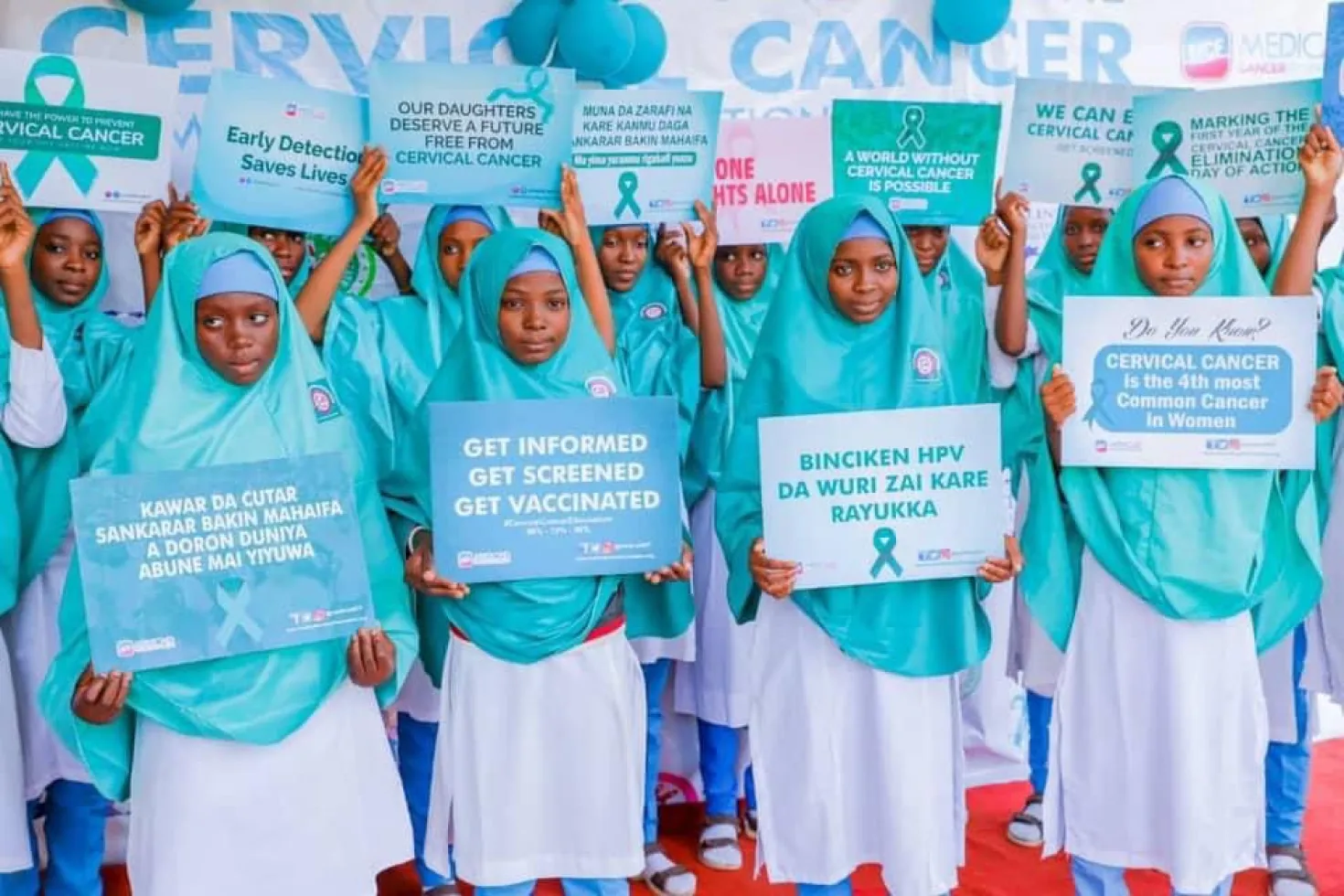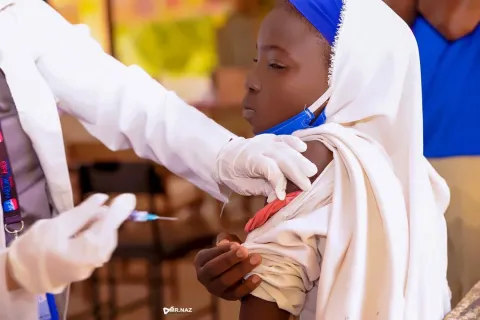Initiating a pilot study to inform acceptability in rural Nigeria

Introduction
In anticipation of the launch of the HPV vaccine in Nigeria in October 2023, the Medicaid Cancer Foundation (MCF) engaged in a pilot vaccination programme, along with a study to assess knowledge about the HPV vaccine and willingness to be vaccinated among 100 female secondary school students in a rural community in Nigeria. Leveraging qualitative research, MCF gathered evidence to showcase that locally-driven communication, advocacy strategies and direct engagement with communities, especially through traditional leaders as community gatekeepers, are crucial success factors for building demand for the vaccine.
Background
In Nigeria, cervical cancer accounts for the second highest cancer burden among women of all ages, with 12,075 new cases and 7,969 deaths in 2020. In line with its National Cancer Control Plan, Nigeria has been preparing for the introduction of HPV vaccination into its national routine immunisation programme, through a school-based vaccination programme and selected community-based programmes to target out-of-school girls. However, there is little data about the contextual factors and challenges, particularly in rural settings, which should inform the implementation of an effective, targeted vaccine delivery programme for girls in rural settings.
Actions

The Medicaid Cancer Foundation, based in Kebbi State in Nigeria, partnered with the Kebbi State Ministry of Health and Jaiz Charity and Development Foundation to pilot a vaccination programme for adolescent girls in secondary schools in Yauri, a rural community in Kebbi state, Northern Nigeria. The study was a descriptive cross-sectional exploration to assess the knowledge, attitudes and perceptions of girls about HPV, the HPV vaccine and cervical cancer. A strong collaboration was put in place with all stakeholders, following a sensitisation programme with key stakeholders in the community, mainly traditional leaders, the Parent Teacher’s Association, and school staff. Broader information campaigns were also carried out within the community. The pilot vaccination programme was rolled out in a secondary school in 2020. 100 girls between the ages of nine and 18 were selected for the study and received the vaccine. The girls were also interviewed to assess their knowledge and perceptions about HPV, the types of cancers caused by HPV, the imperative for girls to be vaccinated, sexual transmission, as well as their understanding of pap smear tests as part of the secondary prevention of cervical cancer.
Results
In the girls-only boarding school where the pilot was carried out, it was found that the students had some knowledge about cervical cancer with an average of 73% for the entire questionnaire. However, 32% of students were not aware that the HPV vaccine could prevent cervical cancer. Moreover, the initial perceptions in the community were very poor with many parents showing vaccine hesitancy and apprehension linked with misconceptions about fertility. Another key finding was that the collaboration of stakeholders, including traditional leaders at the forefront, as well as parents, teachers, health workers and community leaders was crucial to the success of the pilot programme.
Conclusion
The success of HPV vaccine programmes depends on adaptation to sociocultural contexts. Therefore, understanding key cultural and socioeconomic factors that influence populations’ acceptability of the HPV vaccine is crucial for decision-makers, regarding delivery feasibility as well as planning and monitoring of roll-out of routine vaccination programmes in rural areas.
Local cancer NGOs, such as the Medicaid Cancer Foundation, are uniquely positioned to engage with communities for a targeted approach in terms of context, health systems and cultural aspects as well as coordination among all key stakeholders. The pilot study shows that cancer CSOs have expertise, including in implementation research, to ensure the success of HPV vaccine programmes. This pilot also provides key insights to inform future communication strategies that are effective for CSOs to accompany HPV vaccine programmes.
Learn more
The Medicaid Cancer Foundation
Shinkafi-Bagudu Z., Ojo, T., Aliyu, A. et al. Challenges and lessons from a school-based human papillomavirus (HPV) vaccination program for adolescent girls in a rural Nigerian community. BMC Public Health 22, 1611 (2022).
Last update
Wednesday 15 November 2023